The positions are shortly described here:
http://www.phenogenomics.cz/jobs/
Research position (postdoc) in ubiquitin ligases or molecular
biology (2x)
A postdoctoral research scientist position is available immediately
in the Laboratory of Transgenic Models of Diseases at the Institute
of Molecular Genetics of the ASCR, v.v.i. located in BIOCEV (CCP
building) in Vestec near Prague, Czech Republic. We undertake
various approaches to understand the function of several E3
ubiquitin ligases by using mouse models with their potential to be
instrumental for the study of the disease mechanisms, particularly
cancer and inflammatory diseases.
We are looking for a highly motivated individual with a strong
background and skillset in biochemistry and molecular biology. You
should have a Ph.D. in biology or biochemistry and have a good
proficiency in English. Experience in protein biochemistry is a
plus. Your work will focus on wet bench projects including in vitro,
in vivo, and mouse models with the goal of elucidating the molecular
mechanisms of ubiquitination mediated by RING-type E3 ubiquitin
ligases.
The position is available immediately as an initial fixed-term (1
year) contract, with longer term extension possible upon
demonstrated proficiency. The place of work is Vestec u Prahy (Czech
Centre for Phenogenomics – BIOCEV).
Interested candidates should provide motivation letter, CV and
contacts to at least two independent professionals who can provide
reference.
The position is available immediately for an initial fixed-term
contract (1 year), with possible longer-term extension upon
demonstrated proficiency.
PDX (Patient-Derived Xenografts) specialist
The technology known as Patient-Derived Xenografts (PDXs) brings
significant information tumor development and treatment and the
successful applicant will establish and standardize the PDX
technology in order to serve individual clinical groups to handle,
archive and eventually treat tumor patients. Thus, the specialist
will be involved in characterization of new PDX lines derived from
patients with lymphoproliferative malignancies and solid tumors, new
technologies for characterization of tumor xenografts including
metabolomics, developing PDX models, developing a phenotyping
pipeline for PDX samples, and establishing a biobank for PDX samples.
The successful applicant will have strong experience with animal
work and surgery, should have a Ph.D. and/or education in veterinary
or medical science and have a good proficiency in English. The
successful applicant will also have excellent interpersonal,
communication and organizational skills and be highly-motivated with
the ability to work independently and as part of the
multi-disciplinary team of CCP.
*Project description:*
The project focuses on TIKI1 and especially TIKI2 (TRABD2A and
TRABD2B genes) whose biological role in mammals is still purely
understood. TIKIs function as negative regulators of the Wnt
signaling pathway, mediating cleavages of N-terminal residues of a
subset of Wnt proteins. Phylogenetic analysis shows that Tiki1 and
Tiki2 orthologues are highly conserved among vertebrate and
mammalian species although the Tiki1 is missing in rodents. The role
of Tiki proteases will be studied in mouse and human systems and the
work will start with the analysis of our TIKI2 –deficient mice. The
aim of this study is to describe the pathophysiologic roles of TIKI2
(TIKI1).
*Candidate’s profile (requirements):
*M.Sc. (Mgr.) degree or equivalent in molecular/cellular biology or
biochemistry, a good command of English, independent thinking but
also team player, strong interest in basic research and experimental
work, ability to work with animals (rodents – training will be
provided).
*Supervisor:* Radislav Sedláček (radislav.sedlacek@img.cas.cz)
